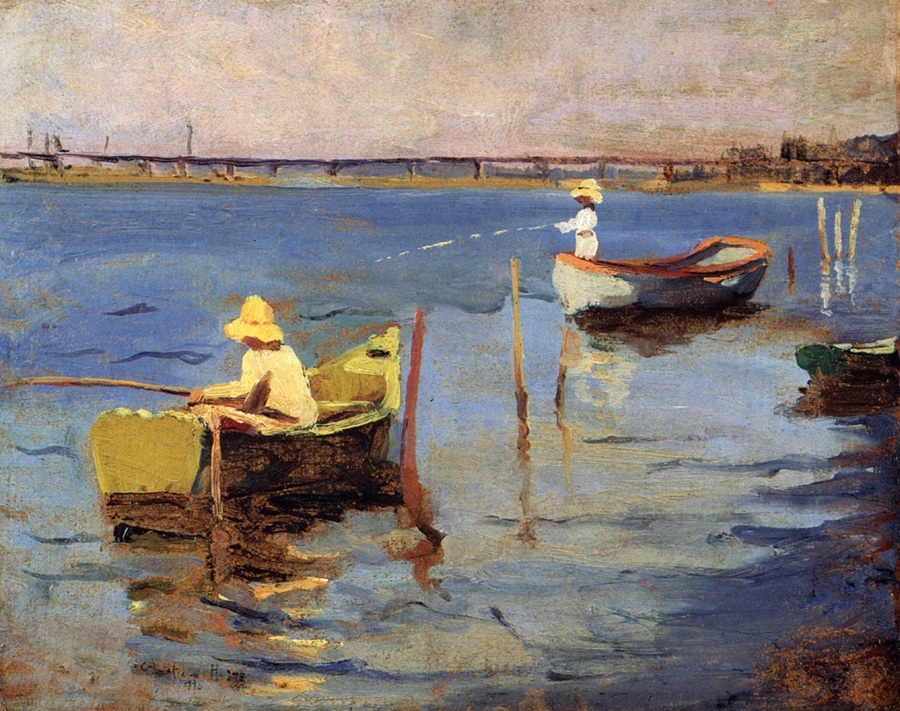From the Aug. 10, 1919 issue of the Boston Daily Globe, selected and edited by Kaimi Rose Lum
So much for the excitement of war days in Provincetown. Now for the real, old, sunshiny, fishing town with its general air of remoteness, its background of sand hills, and its quaint little streets and houses.
You see it from the boat in panoramic beauty, rather loosely scattered along the beach, with wharves jutting out into the harbor, and the tall, granite Pilgrim monument — a tower — dominating the place. There it nestles along the shore, protected from the fierce Atlantic storms by the treetopped and brush-covered sand hills.
You land at the wharf and you see Provincetown in a sort of fever of activity which lasts for a couple of hours — until the boat starts back for Boston.

During these hours busses and autos flit hither and thither, hotel and dining room “barkers” yell through megaphones all about fish dinners that are “ready and waiting,” and the little streets and shops are crowded with the tourists who have just two hours in which “to see it all.” And they can see much in those two hours.
During this excitement the members of the Board of Trade sit on the broad plaza near the landing, quite indifferent to it all. They just sit there and smoke and spin yarns, keeping their weather eyes seaward for anything like a fishing schooner that might be headed in.
That is a habit, for in Provincetown the “old-timers” talk fish, think fish, dream fish. They know everything that swims in the ocean, from a whale to a short lobster. There is even talk here of a whale house for the cold storage of whale steak. About everything else that swims in the ocean is kept in cold storage here — that is eatable. The largest buildings in the town are the cold storage plants.
After the boat departs for Boston the town settles into a sort of brooding stillness in which human beings seem like mere automata and in which the occasional “toot” of an automobile horn or the faint cries of children at play down near the water — or in the water — are about the only sounds.
If you happen to be alone you get a new sense of this place. And you come to a sort of realization of the fact that the people who settled here did so temporarily — were in a sense “squatters” who did not intend to stay but remained, fascinated by the place.
You also get a sense of vast spaces of sky and water and of a sort of tropical sunshine. —A.J. Philpott



